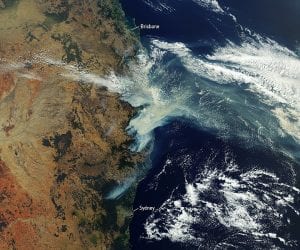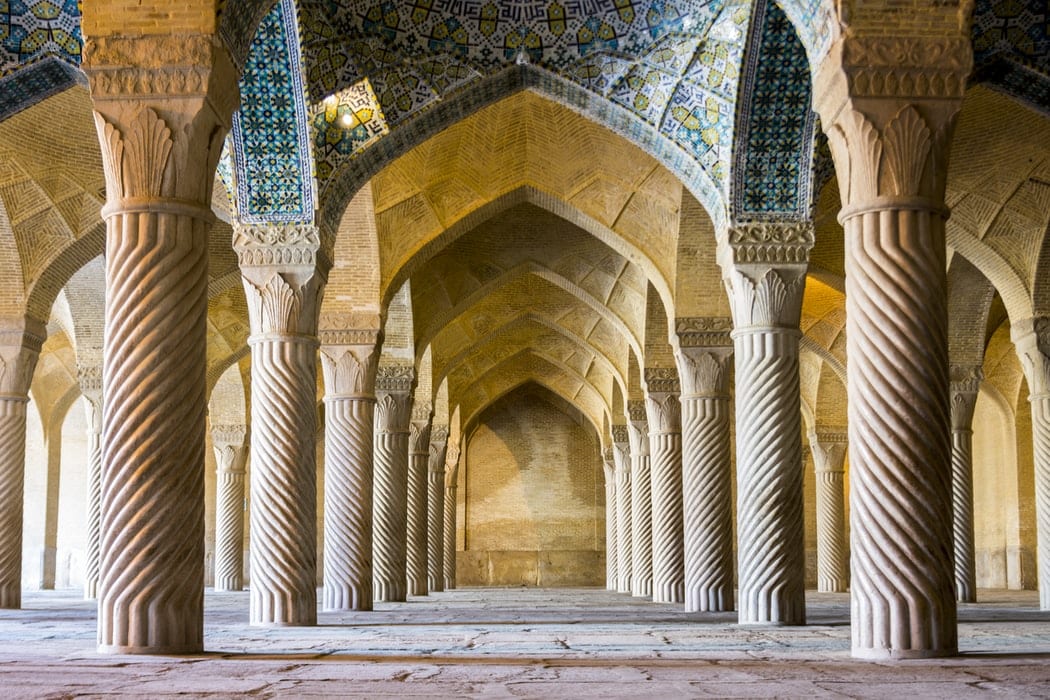From Iran to Australia, we’re living in a time of consequences. What will we hand down to the ones who come after us?
Two of the biggest stories in the news this week – the Iran situation and the Australian wildfires – seem, at first glance, to be isolated events. They burst, fully-formed, from the background noise of the 24-hour news cycle, capture our attention as they dominate the headlines, then fade into the background as other narratives take their place. Our short attention span culture, beset on all sides by constantly blaring media, seldom has time to fully digest news in a historical context. And yet, we’re living in a time of consequences. The actions of previous generations affect us today, and the results of our actions will flow along to people after us.
Early this month (or seven months ago), President Donald Trump ordered the drone attack that killed Qasem Soleimani, a Major General in the Iranian Islamic Revolutionary Guard’s Quds Force. To his countrymen, he was a wildly popular leader, the equivalent of a current American General with Colin Powell’s fame and Dwight Eisenhower’s skill. Many Americans, if they heard of him before his death, considered him a terrorist. Two sides of the same coin, eh? On the surface, Suleimani’s death (and the unsuccessful plan to assassinate Abdul Reza Shahlai, another Quds leader) appears to be the result of Trump’s immediate need to placate GOP senators who could protect him in an impeachment vote. However, Trump’s impulsive kowtow is merely the latest in a string of consequences that stretches back decades.
The long-smoldering tension between Iran and the United States didn’t come out of nowhere. Those old enough to remember could point at the 1979 hostage crisis, but even that was the result of an older conflict. In 1908, William Knox D’Arcy, a wealthy man backed by the British government, bribed his way into total control of Iran’s oil reserves. The unbelievably lopsided terms – D’Arcy only had to pay the Iranian government 16% of the profits, and they couldn’t check his accounting – meant that for decades, Britain lived large. Their high standard of living, industrial output, and even the international reach of the Royal Navy were consequences of British access to cheap Iranian oil.
Meanwhile, everyday Iranians watched their natural resources flowing out of the country, pillaged by others who enjoyed benefits they could only imagine. After WWII, a wave of nationalist sentiment washed over colonized peoples, and in Iran, that meant repatriating their oil. In 1951, the Iranian parliament chose their most ardent nationalist, Mohammad Mossadegh, as prime minister, and unanimously passed his bill nationalizing the Anglo-Iranian Oil Company, promising that the oil income would benefit Iranians, not foreigners. Britain, of course, didn’t much care for this turn of events, and they eventually turned to the United States for help.
In 1953, the CIA and British intelligence forces staged a coup that deposed Mossadegh and instead installed Mohammad Reza Shah Pahlavi, a younger, insecure leader more cooperative with Western interests, on the throne. Mossadegh served three years in prison, followed by lifetime house arrest. The new Shah returned the oil company, rebranded as British Petroleum (now BP), back to the British, and, relying on American weapons and aid, repressed his people until he was overthrown in 1979 by a (perhaps understandably) bitter theocracy. The consequences of decades of American and British colonialism, political repression, economic sanctions, and an oil company that took everything and left crumbs? A hostage crisis, a government that isn’t seen as friendly enough towards the West to develop nuclear weapons, and branding as terrorists. How many people consider this history before demanding a military response?
That’s the hornet’s nest that Trump knocked over to protect his own arse from the consequences of his own actions. Let’s take a moment and appreciate the fact that the Iranians, this culture which has been at the crossroads of war and empire since before the beginning of recorded history, was circumspect enough to balance the burning hot desire for revenge with the pragmatism needed to step back from the abyss of an ugly forever-war.

Which brings us, finally, to the Australian brushfires. They’re incredibly frightening; check out this video from a NSW firefighting crew recording the moment the fire overtook their vehicle. They’re also vast: two already-huge fires recently merged into a single blaze covering 1.5 million acres, an inferno the size of Delaware. More than 26 million acres have already turned to ash. And no matter what various Twitter bots and Donald Trump, Jr., say, the fires are largely not the result of malicious arsonists. They’re the consequences of climate change, the collective result of two hundred years of human action. All the oil (Iranian and otherwise) and all the coal burned mostly since the dawn of the Industrial Revolution have brought us to where we are. Unable to stop ourselves from wanting more, unable to resist the temptation of oil grabs, unable to even agree that action is needed at all.
These consequences are intertwined, too, in the person of Ghanimat Azhdari. Azhdari was born to the nomadic Qashqai tribe, Indigenous people from southwestern Iran who raised her to love the land. She grew up to be a scientist, working with Indigenous communities as far away as Canada to help them protect their forests and cultural sites on their own terms. (Traditional Indigenous Australian conservation practices could have made the land more resilient and protected it against brush fires grown out of control.) On January 9th, Ghanimat Azhdari was one of 176 people killed when the attack-wary Iranian military shot down a Ukrainian passenger jet. She was only 36.
History moves and flows. Chains of events unfold over centuries, connect for a moment, and continue into the misty future. Our grandparents’ actions, through us, affect future generations we will never meet. One wonders how far the consequences of Donald Trump’s actions will ripple into a world that can’t afford them.
Related: Fifty Years Ago


Join the conversation!